- Home
- Johnny D. Boggs
Return to Red River Page 11
Return to Red River Read online
Page 11
“The spelling of Jesse Chisholm’s name should have been a clue,” Tess said.
“Not to mention that, last time I was in Kansas, Denver wasn’t part of the state.”
“Coffee?” Tess held the cup toward Mathew, who took it.
“Why did you buy it?”
Mathew laughed. “I didn’t. Groot did.”
“Groot doesn’t read.”
“That’s right. But this drummer he met at the mercantile said it was gospel, and it only cost him two bits.” He sipped the coffee. Janeen Yankowski had made it strong, and, for the Polish servant, pretty damned good. No, Mathew was just tired.
“What time is it?” he asked absently.
Tess started to answer, but then took the ladies’ watch that hung from her neck. “Nine fifteen,” she said.
“Hell’s fire.” Mathew finished the coffee, put it on his ledger, not caring if the coffee that spilled would stain some of the figures, and fetched his hat. “Too much work to be done. Didn’t mean to spend so much time doing the books and such.”
Tess smiled. “I’m sure Colonel C. J. X. Carter told some interesting tales.”
He kissed her. “He was only a major.”
“That might explain the errors.”
Smiling, he walked out of the library.
* * *
Days turned into weeks, and those days became hotter while the nights didn’t exactly cool down. Mathew Garth wore out one saddle, and one pair of boots, the leather on the tops of the left sides—which rubbed against the saddle—rubbed raw till the uppers split at the seams. Janeen Yankowski stitched them up, a passable job, but she was no cobbler. Mathew couldn’t afford a cobbler. He began switching his boots to save wear and tear, the repaired boots one day, his Sunday-go-to-meetings—which had cost him forty-five dollars back when he had money to spare—the next. After two weeks, you could barely tell the difference between those boots.
They road-branded all strays. Like Thomas Dunson twenty years earlier, Mathew told the men that he did not care whose brand the cattle wore, they would all be road-branded with Garth’s iron. If someone protested, Mathew would sort things out later. Sorting steers by brands took time, and time was one thing Mathew didn’t have.
Yet when Joe Nambel and No Sabe rode up in the twilight as Mathew and the boys were kicking out the cook fire and saddling their horses to return to the ranch, Nambel grinned, “Boys, we’ve done it.”
Every muscle ached, but Mathew showed no pain.
“How many?”
“Three thousand, three hundred twenty-nine,” Nambel said. He jerked his thumb at the Mexican behind him. “That’s his count. Me? I never could count past twenty-one.”
“Criminy,” Groot said, “I didn’t think there was that much beef left in the country.”
“Well,” No Sabe said, “maybe some came from Mexico. ¿Quién sabe?”
Most of the men laughed, but not Mathew. He let out a welcome sigh. “All right,” he said as he walked toward his horse. “Let’s not lose them tonight.”
He rode hard back to the ranch, slowing as he saw the rig parked in front of the main house. It was a Columbus phaeton, painted green with a gold stripe, a canopy top with red curtains, and headlamps on both sides. Only one man in the county had a rig like that. Besides, even if he didn’t recognize the buggy, he knew who had come calling. The two Olde English Bulldogges lying in the front, whimpering at the sound of coyotes yipping off in the distance, were a dead giveaway.
CHAPTER FIFTEEN
Hanging his hat on the corner rack in his library, Mathew hooked a thumb toward the door. “Your dogs are outside.”
“Don’t worry, Garth,” Chico Miller said. He sat behind Mathew’s desk, his Congress gaiters propped up on the desktop, puffing one of his imported cigars while holding a snifter of brandy in his right hand. “I didn’t bring them curs to bait your bulls.”
“But coyot’s outside are scaring them. The coyot’s this far from town, they might give them more than just scars.” Mathew remembered the scars on the dogs’ hides, how Miller had explained that coyotes would lure those big bulldogs into an arroyo and ambush them.
“The dogs go everywhere with me, Garth,” Miller said. “And after four set-tos with coyotes, they won’t be running off anywhere. They’ll just sit in my rig till I come outside and take them home.”
Tess, sitting in a corner, rose. She held a snifter, too, but hers had been barely touched.
“The boys?” she asked.
“They’ll be along directly.”
Miller pointed his cigar at Mathew. Ash fell onto the floor. “Where are your boots?”
Mathew stood in his stocking feet. “Your dogs didn’t just sit in your fancy buggy. They laid a trap for me.”
The banker laughed. Slowly, he dragged his feet off the desk, put the cigar in an ashtray, and stood. “Before you ask me to clean the dung off your boots and kick me out of your house, you might want to offer me another drink.” He fished a cigar from his coat pocket. “And I’ll offer you a fine cigar. And a deal.”
* * *
They had moved to the dining room, allowed Janeen Yankowski to retire for the evening after pouring the last of the coffee. Outside, Mathew heard the riders coming in—their laughter, their curses carrying in the night air—and knew, with relief, that Tom and Lightning would take their supper in the bunkhouse with the rest of the boys.
Mathew had washed up, changed his trail duds for canvas britches, a calico shirt, new socks, and his pair of boots that did not have dog manure on the bottoms. Now he sat next to Chico Miller, with Tess on the other side of the table.
“I was a bit hasty,” the banker said, “in my evaluation of the cattle market. The sorry food and lousy whiskey in this godforsaken country must be destroying my mind. And the heat. And the cold.”
Mathew waited.
“Supply and demand, Mathew. It’s all about supply and demand.”
Mathew looked across the table at Tess, then faced Miller again.
“This country still needs beef, Garth. You’ve got beef. Most outfits don’t. They lost it all, or too much of it, in the blizzards.” The banker had hoisted his valise onto the tabletop. Now he reached in it and pulled out a newspaper. He slapped it, unfolded, on the table.
“The Kansas City Times.” He expounded no further. Another paper came out. “Ford County Globe.” Another paper. “Chicago Inter Ocean.” And one more. “The New York Herald-Examiner.” His hand reached back into the grip and came out with several thin yellow slips of papers. Telegraphs.
These he held up for Mathew to glance at but did not drop them on the table. “And I’ve been burning the telegraph wires with some men I know on the stock exchange. Cattle prices dropped last year to three-sixteen a hundredweight. That’s a loss of fifty-plus percent from what it was back in ’84. But people still eat. And they want beef. Not pig meat. Not mutton.” He dropped the telegraphs back inside the valise. “At your lovely Dodge City two weeks ago”—Miller pointed a beefy finger at the Ford County Globe, a daily paper published in the Kansas cow town—“thirty head sold for thirty-one dollars a head. It hasn’t hit that mark in years.”
Miller fetched another Havana from his coat pocket.
“How much cash do you need to make your drive?”
Mathew felt that tightness in his chest ease, and the shoulders relax. He started to answer, but thought better of it.
“Dunson didn’t have any money when we rode north after the war. Maybe I was the hasty one.” He caught Tess’s grin, but Miller didn’t. He glowered.
“Times have changed since then. This state isn’t even under Reconstruction anymore.” He waved a meaty palm to silence Mathew. “You have thirteen dollars and sixty-two cents left in your account in my bank. I know the amount of money you owe the mercantile, and even the tab at the Rio Saloon. You have notes due. And I’m guessing that what cash money you have on you, won’t get you to San Antonio, let alone Dodge City. This isn’t 1866, Garth.
You need money. I’m here to offer you a loan of two thousand dollars.”
Mathew blinked. It was Tess who asked the next question.
“And what do you want, Chico?”
“Collateral,” he answered.
After wetting his lips, Mathew took a sip of the coffee, now cold, and tilted his head toward the front of the house. “We have three thousand, three hundred and twenty-nine longhorns. At even thirty bucks a head, that’s . . .”
“A risk,” Miller said. He reached for the Kansas City Times and tapped on the small print. “Raiders took a herd on its way to Garden City. Only one hundred head. Killed two drovers, wounded three others. Just like what happened to Cummerbund all those years ago.”
“Cummerlan,” Mathew corrected.
The banker shrugged. “Even if outlaws weren’t still riding this country, there are Indians, greedy as a New York banker, and tornados, stampedes, river crossings. I eat steaks, Garth. That’s as close as I come to investing in cattle.”
“Then what?” Tess asked.
With that grin, Miller again found what he needed in his valise. He slid it across the table toward Matt, then leaned back in his chair, rocking it on the legs, and found a match in another pocket to light his cigar.
As Mathew picked up the document, Tess rose, moved around the table, and put her hands on the edges as she read over Mathew’s shoulder. She read only a few lines before her head rose, and those green eyes hardened like diamonds.
“The ranch?” she said.
CHAPTER SIXTEEN
With a wry grin, Chico Miller struck a match on his thumb, and lighted his Havana. He offered one to Mathew, who shook his head, and then held the rejected cigar out to Tess, who simply glared. So the banker stuck that cigar into his coat pocket and puffed a bit on the one in his mouth. Finally, he withdrew the cigar.
“Not all of the ranch, of course. Just this place. The home. The buildings. And the six hundred forty acres specified there.”
“Which is worth a damned sight more than two thousand dollars,” Tess snapped.
“In good years, maybe.” The cigar returned to Miller’s mouth.
Mathew said, “I’ve never seen you smoke a cigar.”
The banker laughed. Now the cigar went into an ashtray. Pressing the tips of his fingers together, he began to explain. “It’s this way, friends. A bank has investors. You know that, Garth. You’re on the board. I’d love to just buy an interest in your herd, give you the two thousand in cash, but, alas, that’s not how I can work things. This isn’t my money. It belongs to José Jiminez and Dooley McDermott. It belongs to Mayor Boone and even the Widow Morgan. That’s how banks operate. I barely have enough money to pay for the room I rent in the hotel. But it’s a good offer. Two thousand dollars. Cash on the barrelhead. And you’ve made that drive . . . how many times, Mathew?”
Mathew shrugged.
“Did you ever not make money on a drive?”
“I was never short on cash to begin a drive,” he answered.
“That’s not my fault. Or the bank’s.”
Mathew shot a glance at Tess, whose eyes continued to burn. Again, he scratched his nose and said, “I couldn’t get credit at Hansen’s mercantile.”
“That’s not my fault, either,” the banker said as he reached for his cigar.
“I wonder,” Mathew said.
The banker’s hand froze over the end of his Havana. Looking up, he said, “What do you mean by that?”
But Mathew did not answer. He was looking at Tess, only now his wife was staring at him. They did not speak. After two decades as man and wife, they knew each other well enough that, sometimes, words were not required.
It was Tess, still holding the agreement, who grinned as she returned to document to Chico Miller. He frowned as he took the papers, leaving his cigar in the ashtray, his smug countenance suddenly replaced by one of rejection, disappointment.
Yet as soon as Tess laid the document on the desk, she reached over and withdrew the nib pen from its holder. Smiling, Tess handed the pen to Mathew, who took it in his right hand and walked around the desk. He picked up the contract, read it, then placed it on the desktop and dipped the pen in the inkwell. His signature was florid, almost ladylike, and after dating the document, he returned the pen to the holder and lifted the paper, blowing on the ink to dry.
“All right, Chico,” he said, handing the papers to the banker. “I’ve made deals with the devil before. Here’s your agreement. Now let’s see that cash.”
* * *
What was it Dunson had told the men before they signed on? “Signing on means you agree to finish. Nobody quits. Understand that. No one. Not me. Not Mathew. Not any of you. We see this thing through . . . to the finish. I never have tolerated a quitter. I certainly won’t now.”
Something like that, anyhow. Too many years had passed for Mathew to remember the words as Thomas Dunson had spoken then in this very bunkhouse.
Mathew told himself that he was not Tom Dunson. Then he spoke to the men gathered in the bunkhouse.
“Get killed on this drive, your kin will be paid in full. If you have any kin. But quit . . . quit at any time between once you’ve signed your name or made your mark and when we reach Dodge City . . . Quit?” He shook his pay. “You lose all your pay. And as I’ve told all of you, if we lose the herd, you lose your pay. I want to make that clear.”
Sitting with his boots on the table, and those spurs digging into the wood, Groot chuckled. “So what you’re tellin’ us is that it could be more profitable for us iffen we get kilt.”
Everyone laughed, and even Mathew smiled.
The banter continued.
“Is that why we got the hoodlum wagon?” Joe Nambel asked. “To haul caskets.”
Groot fired back. “Nah, each man carries his own casket. It’s what we call your soogans, and it’s tied right behind your cantle.”
“For sleeping at night,” Nambel sang, “or sleeping forever.”
“Sounds fine to me,” Milt Blasingame said. “Just bury me where I fall, boys. It don’t even have to be six feet deep.”
“You sound like a preacher, Milt,” Joey Corinth, the young wrangler, said.
With a snigger, the old army scout turned to verse, which, to Mathew’s surprise, he recognized.
“He prayeth best, who loveth best
All things both great and small;
For the dear God who loveth us,
He made and loveth all.”
“Coleridge,” Mathew said, but no one heard. Not that anyone would have understood. Except Milt Blasingame. Or Bradley Rush.
“All right, boys. Sign on and draw your pay.” He dipped the pen in the inkwell and stepped back from the register. No Sabe was the first to sign his name. When he did, Mathew held out a double eagle.
“What is this?” the Mexican said.
“What I owe you,” Mathew said.
“But you said . . .” He stared at the gold coin as if he had never seen one before. Maybe he hadn’t.
“Forget what I said. You draw wages. They ended slavery in this country twenty-one years ago.” A thought ran through his head: Was I fighting for slavery while I was riding with Nathan Bedford Forrest? He looked over at Milt Blasingame, who would be driving the hoodlum wagon, and Joey Corinth, the young wrangler. No Sabe stepped away from the table, still staring at the coin he held in his hand. Mathew looked at the register and smiled.
He would continue to call him No Sabe, but at least now he knew the man’s name. The men would be able to get a handle on No Sabe a lot better than Maaravi Abioye Babatunde y Kaden. “You’re being paid,” Mathew told them, “what I owe you. So you’re not obligated to make this drive. Walk out now, there will still be work for you when we get back.” The last sentence was something he recalled Dunson telling the men, and those words he had not forgotten or misremembered.
Groot—who had signed on first all those years ago—kept his feet propped on the table, watching the others. They came by,
one after the other, making their X or a thumbprint or whatever they could, or signing, cursive or crude block letters, their names. One by one. No one walked out of the door, which had not been the case two decades earlier.
Fourteen men, plus Mathew, but Mathew wouldn’t be drawing wages. He had decided, however, to go ahead and pay Tom and Lightning. Groot got fifty a month, and Laredo, as foreman, seventy-five. Thirty bucks for each man on the drive. For the roughly three weeks they had been working. Plus the salaries for the four men staying behind at the ranch, and Janeen Yankowski . . . he had already done the math. Leaving Tess with enough money to pay the salaries of the hired help for the three months he expected to be gone, and what he was now paying the trail crew, and just a little bit of cash for Tess, he had already spent one thousand dollars.
Maybe he should have dickered with Chico Miller or held out for five hundred, maybe a thousand more dollars.
He shook away those thoughts—math and budgets and books had always been a nightmare to most ranchers; even Dunson had hated it—and smiled as he shook Bradley Rush’s hand and gave him his twenty-dollar gold piece.
One by one, they signed the register and took their cash, even the men staying behind.
This time, Groot was the last one to take his pay, which he immediately handed over to Teeler Lacey, Alvaro Cuevas, and Bradley Rush. At least Cuevas handed the old cook some crumpled greenbacks and a Morgan dollar in change.
Groot shrugged. “Poker,” he said. “Don’t know why I even play.”
“You don’t play,” Lacey said. “You just lose.”
Which got more laughter.
Matt closed the book, took a breath, exhaled, and said, “You’re free to go to town tonight. It’ll be the last town you’ll see for a while.”
“If,” Joe Nambel said, “you call Dunson City a town.”
More laughter.
“But,” Mathew put a little edge into his voice, “we finish culling the herd tomorrow. Do your drinking at the Rio. Stay out of the Knuckle Coupler. Because day after tomorrow, come first light, we take those longhorns to Dodge City.”

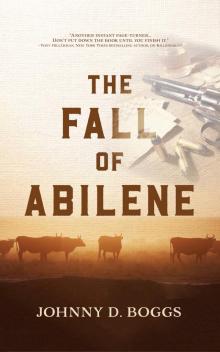 The Fall of Abilene
The Fall of Abilene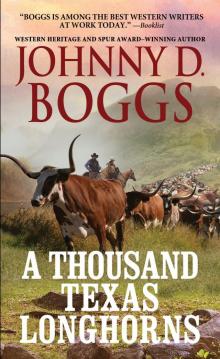 A Thousand Texas Longhorns
A Thousand Texas Longhorns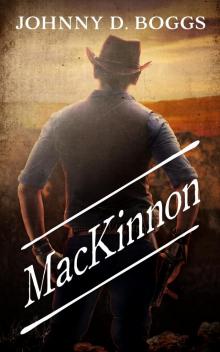 MacKinnon
MacKinnon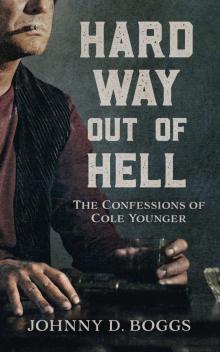 Hard Way Out of Hell
Hard Way Out of Hell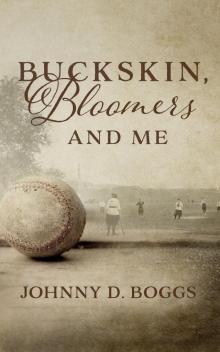 Buckskin, Bloomers, and Me
Buckskin, Bloomers, and Me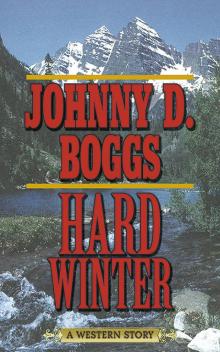 Hard Winter
Hard Winter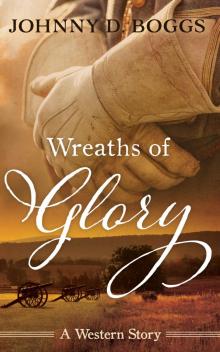 Wreaths of Glory
Wreaths of Glory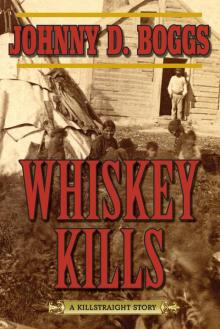 Whiskey Kills
Whiskey Kills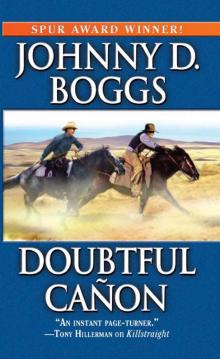 Doubtful Canon
Doubtful Canon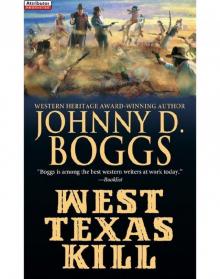 West Texas Kill
West Texas Kill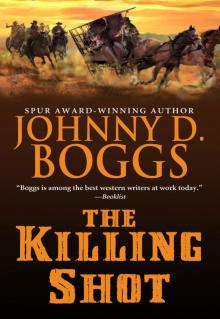 The Killing Shot
The Killing Shot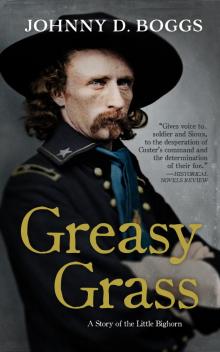 Greasy Grass
Greasy Grass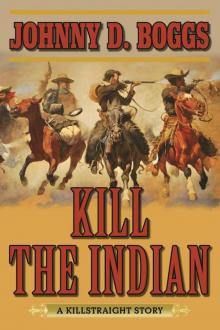 Kill the Indian
Kill the Indian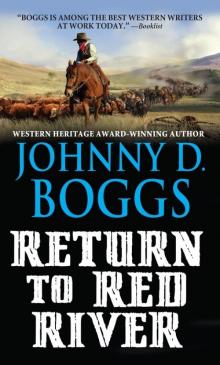 Return to Red River
Return to Red River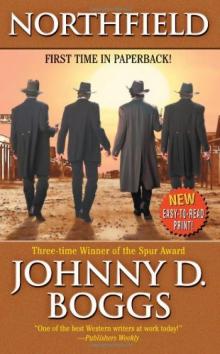 Northfield
Northfield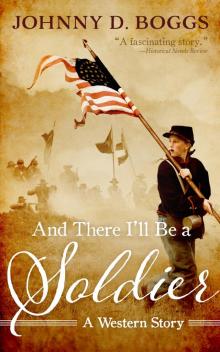 And There I’ll Be a Soldier
And There I’ll Be a Soldier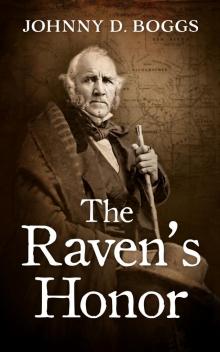 The Raven's Honor
The Raven's Honor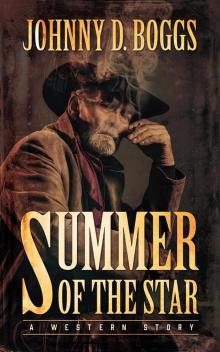 Summer of the Star
Summer of the Star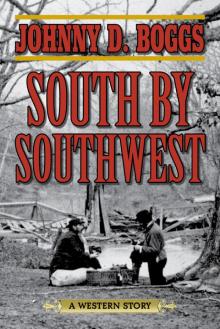 South by Southwest
South by Southwest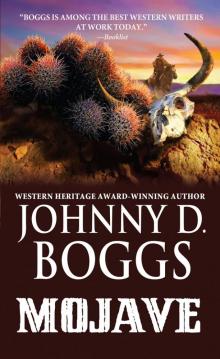 Mojave
Mojave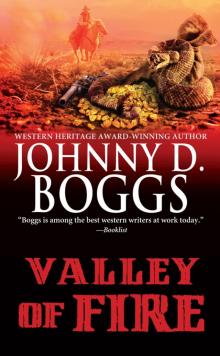 Valley of Fire
Valley of Fire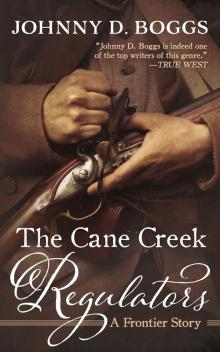 The Cane Creek Regulators
The Cane Creek Regulators